Art World
Crosswalk Art Threatened by Federal Highway Administration’s Recommendations
Colorful crosswalks could be a thing of the past.
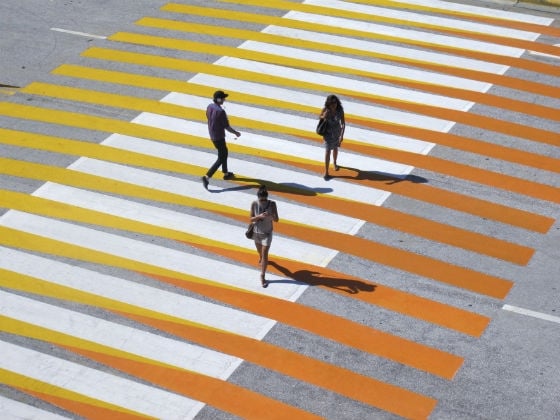
Colorful crosswalks could be a thing of the past.

Sarah Cascone

Colorful crosswalk art can cheer up the streets of any city, but it may be on the road to extinction in the United States, thanks to recent actions in St. Louis.
The city of St. Louis has instituted a ban on crosswalk art, and will let current paintings of leaves, rainbows, and fleur-de-lis created over the last two years fade away, reports the St. Louis Post Dispatch. The city cites the Federal Highway Administration‘s recommendations on the “application of colored pavement.”
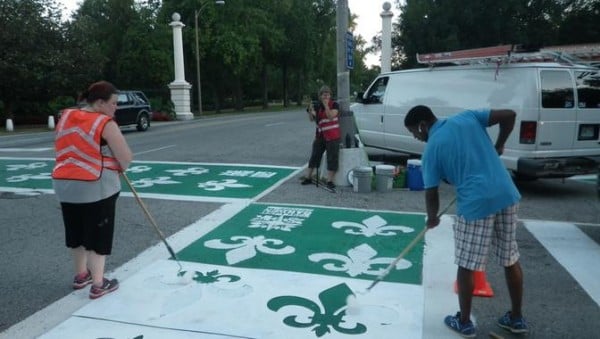
St. Louis’s crosswalks.
Photo: Rally St. Louis.
The FHA’s guidelines actually predate St. Louis’s crosswalk art initiative. In 2011, the city of Buffalo reached out to the agency for approval for a proposed painted crosswalk initiative.
The FHA’s response put a halt to the project instead, citing a 2009 regulation that reads “colored pavement located between crosswalk lines should not use colors or patterns that degrade the contrast of white crosswalk lines, or that might be mistaken by road users as a traffic control application.”
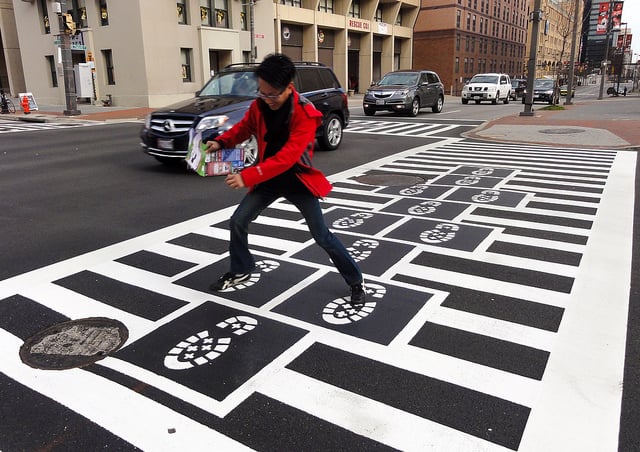
Graham Coreil-Allen, Hopscotch Crosswalk Colossus (2013), Baltimore.
Photo: Graham Coreil-Allen.
“I don’t honestly believe someone’s going to trip over a fleur-de-lis crosswalk, but at the same time we want to be consistent with the memo the feds put out,” St. Louis bike/pedestrian coordinator Jamie Wilson told the Post Dispatch. “It’s probably an ultra-conservative approach when it comes to safety, which is fine.”
While St. Louis is exercising caution, crosswalk art continues to pop up across the country and around the world.
Baltimore tapped Graham Coreil-Allen and Paul Bertholet to create inventive crosswalk works for the city’s Office of Promotion and the Arts in 2013, and San Francisco gave a nod to LGBT pride by installing rainbow-striped crosswalks in the historic Castro neighborhood in December 2014.
In Canada, Montreal’s Peter Gibson, aka “Roadsworth,” was arrested in 2004 on 53 counts for his illegal artwork, including a number of crosswalk-based works. But since then, he’s been officially commissioned to create additional artworks around town.
Other excellent examples of international crosswalk art include art director Dominque Magnusson’s McFries crosswalk in Zurich, Switzerland, a great optical illusion in Kyrgyzstan, and a 3-D painting of Charlie Brown and the Peanuts gang aping the Beatles‘ iconic Abbey Road album cover on a crosswalk in Osaka, Japan.
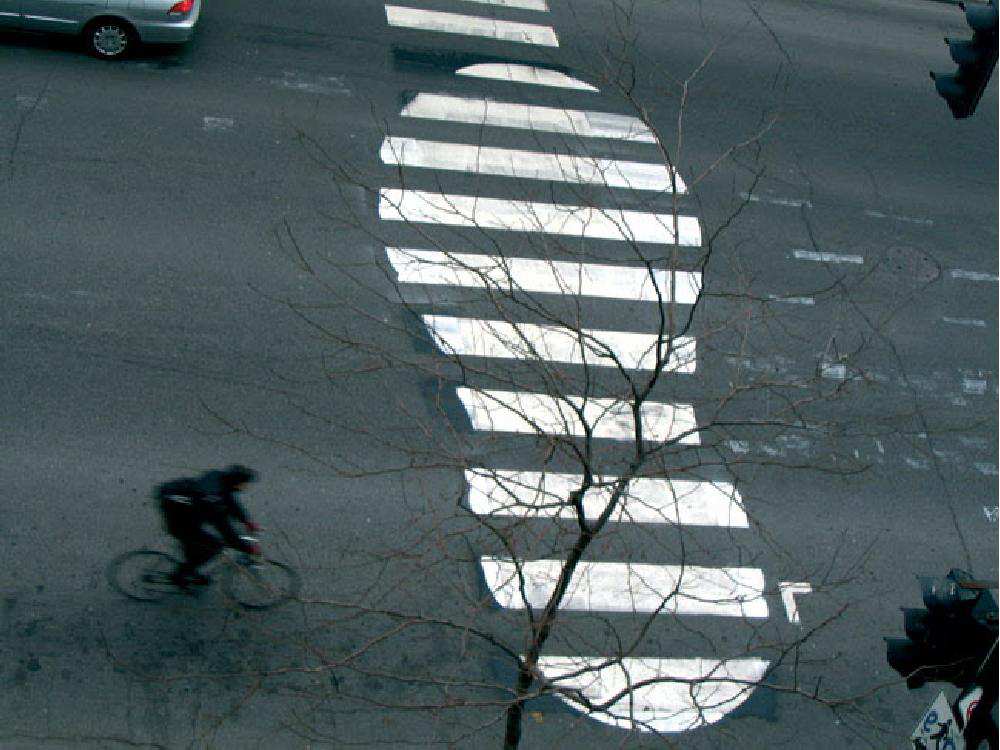
A 2003 crosswalk painting by Peter Gibson, aka “Roadsworth,” in 2003.
Photo: courtesy Peter Gibson.
Hopefully, the FHA can find a way to reconcile crosswalk art and traffic safety, or the splash of color on city streets could become a thing of the past in the US.
A few more prime examples of crosswalk art are below.
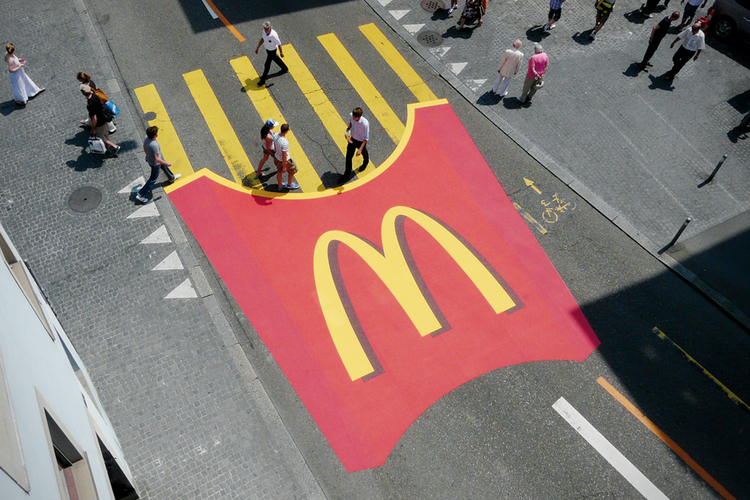
Dominque Magnusson, McFries.
Photo: Dominque Magnusson.
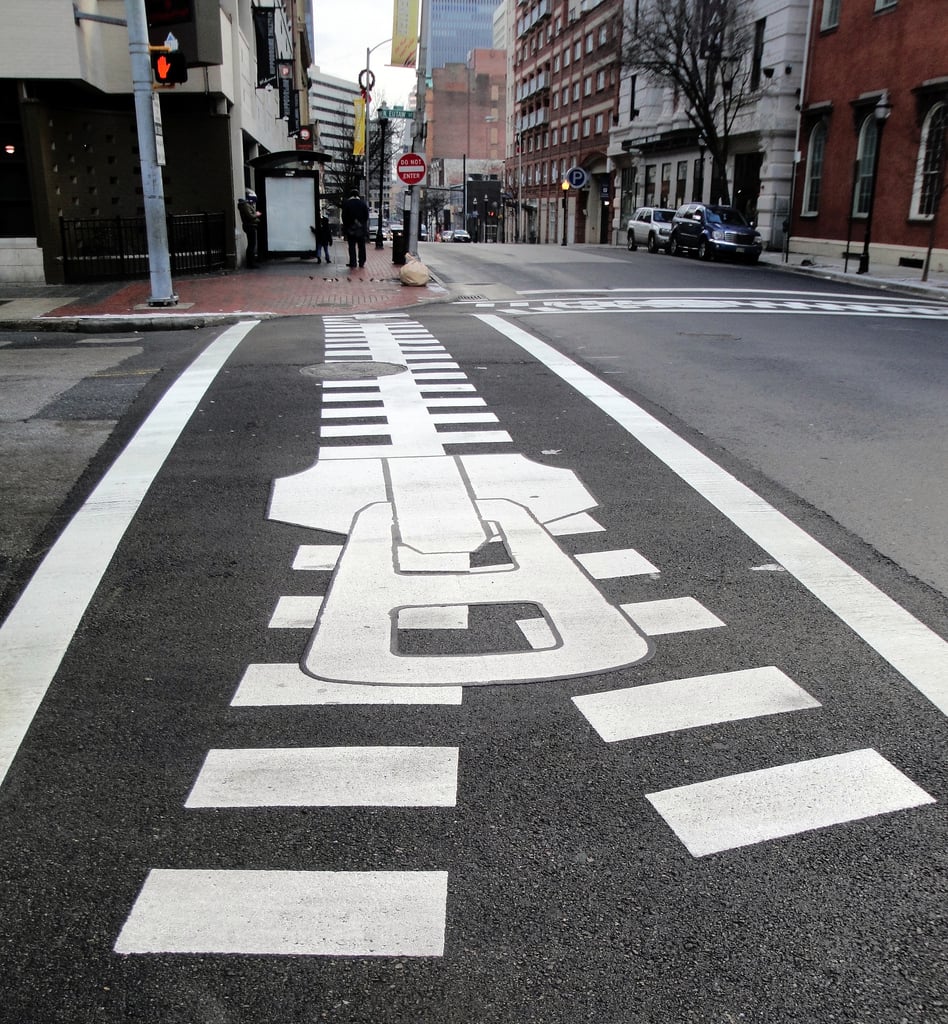
Paul Bertholet, Zipper Crosswalk (2013), Baltimore.
Photo: William Angel, via Flickr.
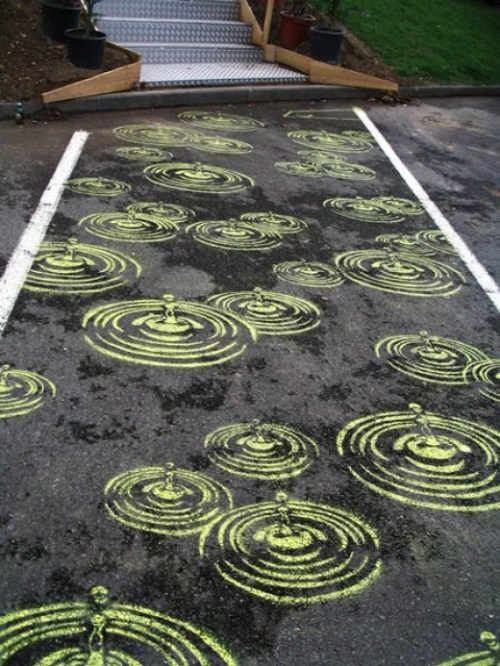
Peter Gibson’s road raindrops.
Photo: courtesy Peter Gibson.